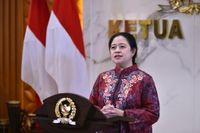The Indonesian government recently affirmed that there will not be a resurgence of the dual function of the military following the revision of Law Number 34 of 2004 concerning the Indonesian National Armed Forces (TNI). Defense Minister Sjafrie Sjamsoeddin took a firm stance, stating that the concept of conscription is obsolete and that the dual function of the military no longer applies in modern Indonesia. "Nggak ada lagi wajib militer. Yang ada itu untuk perwira dari akademi militer, prajurit karier, atau komponen cadangan," he said, highlighting the government's intent to solidify military roles strictly within specified boundaries.
Sjamsoeddin reassured the public, addressing concerns over potential military influence in civilian sectors. "Tidak ada dwifungsi-dwifungsi lagi. Jangankan jasadnya, arwahnya pun sudah tidak ada," he emphasized, clearly delineating between military and civilian responsibilities. He confirmed that active TNI members are not occupying positions beyond the 14 ministries or institutions specified in the TNI Law. Furthermore, the new legislation stipulates that active soldiers are prohibited from engaging in business ventures, ensuring a strict separation from the commercial sector.
Puan Maharani, the Chairperson of DPR RI, also responded to recent protests from students worried about the implications of the TNI Law's passage. "The DPR and Government will immediately disseminate the substance of the amendments to address concerns surrounding this law," she stated, indicating a readiness to clarify misunderstandings in the public narrative. She noted that the law's provisions will be thoroughly explained to alleviate fears that harked back to the era of dual function militarism prevalent in TNI history.
In light of the public’s apprehension, Puan emphasized that no part of the amended law allows for the military to engage in political or business activities, reinforcing that the principles governing TNI remain intact. "TNI tetap dilarang berbisnis dan berpolitik. Ini adalah prinsip yang kami jaga dengan baik," she remarked. During a recent press event, Puan elaborated on how public consultations and student participation were critical in drafting the TNI Bill, ensuring that various societal perspectives were well integrated into the legislative process.
Puan highlighted that the focus of the revisions targets three critical areas: the role of the Ministry of Defense and the TNI, the allocation of active TNI personnel in ministries based on necessity, and considerations around retirement age. She noted that the revised law has expanded the scope of positions available for the TNI within different ministries from ten to fourteen, accommodating contemporary requirements for national defense initiatives.
Outside of personnel management, the new legislative framework also introduces additional tasks for TNI, asserting that these are designed for "Military Operations Other Than War" (OMSP), involving responses to non-conventional threats such as cyber defense. Puan explained, "Ini hanya sebagai bentuk antisipasi dan sifatnya adalah Operasi Militer non Perang (OMSP)," pointing to the government's proactive approach in adjusting military roles to contemporary challenges.
Furthermore, the Working Committee formulated documents outlining the revisions to clarify any confusion proliferating on social media. This act of transparency was lauded as a necessary step toward engendering public trust in the legislative body and the military’s role within civil society.
In a firm concluding statement, Puan renewed her dedication to ensuring that the military function aligns with democratic principles and civil supremacy. "Kami berkomitmen untuk mengutamakan supremasi sipil dan menjaga hak-hak demokrasi serta HAM sesuai dengan ketentuan perundangan yang berlaku di Indonesia dan internasional," she asserted. The DPR's commitment to engaging in open dialogues with the public and students reflects a broader effort to foster understanding regarding the organizational changes within Indonesia's military framework, ultimately aiming to buttress national security against evolving threats.


